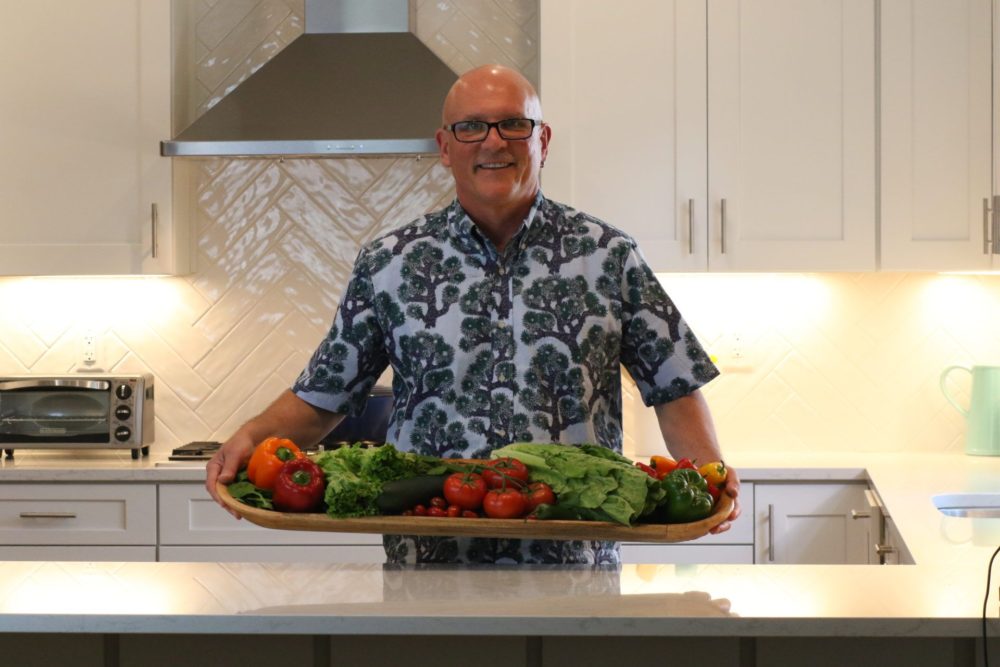There are two clear routes towards better unit economics in vertical farming.
One is to innovate around the analog and digital infrastructure, or ‘hardware,’ of vertical farming — things like automation, lighting, and temperature controls — in order to bring down the power and space costs that all too often put the practice beyond the bounds of commercial viability.
The other route is to look at upgrading the ‘software.’ If electricity, rent, and water costs are too high, then why not change the biology of the crops themselves so that they fare better in restrictive vertical farming environments?
German biochemicals giant Bayer and Singaporean sovereign fund Temasek are going for the second option with the launch of their new jointly owned company Unfold.
Unveiled today, Unfold will carry out innovation around vegetable varieties “that deliver optimized quality and sensory experience” with the aim of “lifting the vertical farming space to the next level of quality, efficiency, and sustainability,” its two initial backers said in a statement.
While not technically a joint venture, the business has been set up with $30 million in funding from Temasek and Bayer’s investment unit, Leaps by Bayer.
Unfold CEO John Purcell — formerly head of vegetables research and development at Bayer Crop Science — told AFN that Bayer and Temasek will have equal ownership of the new company, “but this may change over time.”
“Unfold has the flexibility to seek investment from other companies in the future,” he added.
Germplasm rights
In addition to capital, Bayer has also granted the new venture rights to leverage select germplasm (seeds and other genetic material) from its vegetables portfolio – something that Purcell will be closely familiar with.
“The focus of the germplasm is on flavor, nutrition, and other consumer preferences, as well as plant growth characteristics of value to vertical farmers,” he said. “These include early and uniform fruiting, rapid biomass accumulation, auto-harvest architecture, yield efficiency, and photo-induced quality traits.”
According to Purcell, the germplasm that Unfold will initially have access to includes lettuce, spinach, tomato, pepper, and cucumber. The company has an option to later extend that to five additional varieties from Bayer’s specialty crop portfolio.
The seed profiles involved in the rights deal with Bayer do not include seeds for genetically modified organisms (GMOs).
“GMOs are a very valuable tool for food production but at the present time GMO traits are more valuable in conventional fields. The high-tech vertical farming environment is better suited to exploring the potential of other modern breeding techniques, such as gene editing,” Purcell added.
A $12.8bn opportunity
The global vertical farming market is projected to expand at a compound annual growth rate of 24.6% between 2019 and 2026, and with market value rising to an estimated $12.8 billion by the end of that period, Unfold sees plenty of opportunity in the specialized seeds business.
“At the moment, the vertical farming market is small, but poised to rapidly expand. As a market segment, vertical farming has unique and rapidly evolving needs because of the many different growing systems and evolving technologies such as lighting and harvesting systems,” Purcell said, explaining Bayer’s decision to set up an independent company to tap this opportunity rather than pursuing in-house development.
“Making this investment to create Unfold now will create a company that is able to uniquely focus on this nascent, growing, and evolving market.”
As for Temasek, its role in establishing Unfold would appear to be closely linked to Singapore’s well-documented pursuit of agrifood innovations and business models that can help it enhance its own food resilience. This includes its ’30 by 30′ policy goal, which aims to have 30% of the city-state’s nutritional needs sourced domestically by 2030 – up from less than 10% today.
AgFunder-backed GROW Accelerator recently launched Singapore Food Bowl – a unique program aimed at building a more resilient, sustainable, and decentralized agrifood ecosystem in the wake of Covid-19. Meet the 12 participating startups here
“In addition to investments in traditional agricultural companies, [Temasek has] investments in, and relationships with, a range of vertical farming companies,” Purcell said. “Bayer and Temasek both recognize that food security is a priority for Singapore, and given the dearth of arable farmland, vertical [and] indoor farming will play a key role in ensuring [that].”
Unfold will have an operational presence in Singapore and across the US, with its headquarters in Davis, California.
“Singapore is one of many countries experiencing an increasing demand for fresh, sustainable, and locally grown produce that has a smaller environmental footprint, using fewer resources to grow and ship, [and] offering peak freshness and flavor,” Purcell added. “We believe Unfold has the potential to be a key enabler of Singapore’s and other megacities’ success in achieving food security.”
Unfold won’t be the only new player in the Lion City hoping to seed the growing number of local vertical and indoor farms. Last week, South Korean chemicals major Noroo announced the launch of its agri-solutions hub in the city-state, with its CEO telling AFN that seed customization for controlled environment ag operations is one area it’ll be focusing on.
Got a news tip or an idea for an article? Let me know at [email protected]





